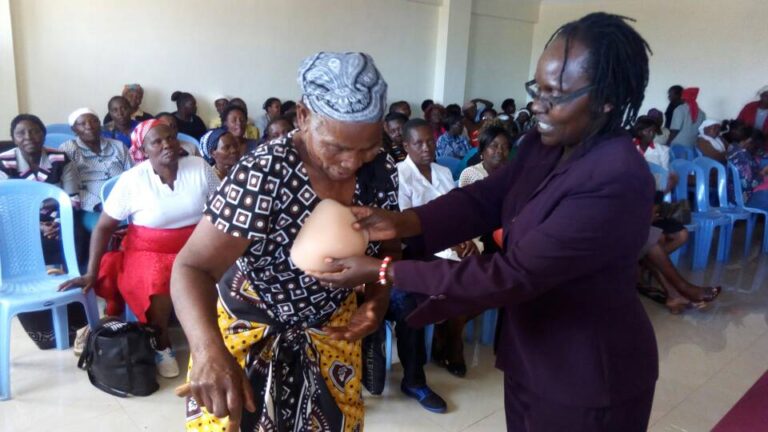Women's Program
- Causes
- Women's Program

Breast Health Awareness Campaign
More than 50% of women in Rural areas don’t get a diagnosis until their disease is in its later stages, often too late for curative care. Early diagnosis and treatment could greatly reduce the burden of breast cancer and improve treatment outcomes. Mercy Steps Program is a partnership program that aims at improving breast cancer awareness in Rural Kenya.
Early diagnosis of breast cancer increases the likelihood of surviving. We have had cases where husbands have found abnormalities on their wife’s breasts during intimacy. We make sure to say this loudly that even men should mention it if they find something unusual. Both women and men must have details about what they can do if they find a spot on their breasts. If they know what to look out for then that’s a step in the right direction. We openly talk about a woman’s body, we normalize self-touching, and we throw it out there that normal breasts have no lumps, they have no lesions and they have no abnormalities.
The program is also committed mainly to the Rural communities in Kenya. Our breast cancer awareness educational programs participants are workers in the general care and Palliative care profession in Kenya.
The Nurses and the Health workers have volunteered to support the program and this has provided a chance for the volunteers and family members with no nursing background to be successful in helping the cancer patients.
More than 50% of women in Rural areas don’t get a diagnosis until their disease is in its later stages, often too late for curative care. Early diagnosis and treatment could greatly reduce the burden of breast cancer and improve treatment outcomes. Mercy Steps Program is a partnership program that aims at improving breast cancer awareness in Rural Kenya.
Early diagnosis of breast cancer increases the likelihood of surviving. Women must have details about what they can do if they find a spot on their breasts. If a woman knows what to look out for then that’s a step in the right direction. We openly talk about a woman’s body, we normalise self-touching, and we throw it out there that normal breasts have no lumps, they have no lesions and they have no abnormalities.
The program is also committed mainly to the Rural communities in Kenya. Our breast cancer awareness educational programs participants are workers in the general care and Palliative care profession in Kenya.
Breast Cancer
Costs:
Appointments
Acceptance.
Treatment
Living with Cancer in Kenya
Women in many communities suffer from gender disparity when it comes to accessing health services. In Kenya, there is the added burden of a lack of diagnosis and inaccessibility to affordable medication.
In the last years, cancer has been known as a poverty disease to many Kenyans. The cancer treatment is known to drain most middle-class families` bank accounts to below the poverty line.
Many families end up selling property shares etc; if one of their own gets diagnosed with cancer
Being employed in Kenya is supposed to make a difference and the fact that all workers contribute to Kenya’s National Hospital Insurance Fund. The NHIF payments towards individual treatment and hospitalisation costs are not enough.
While most first hospital invoices are from KSH.1,000,000 = 10,000, The NHIF is known to cover the hospitalisation costs. Leaving the therapeutics expenses ie; chemotherapy, radiotherapy, Medicine, and blood transfusions to the patients and their families to cover.
It takes years of in and out of Hospital trips. Many women and men end up losing their jobs. There isn’t yet in place job loss insurance in Kenya where most of these people would turn to for help during treatment. So many really end up jobless, in debt, or both, and unable to take care of other family matters like school fees for their children.
Public Hospitals
Most treatments are carried out in East Africa’s largest referral hospital, Kenyatta National Hospital in Nairobi. It’s one of the two public hospitals in Kenya with a fully functioning oncology centre.
Many travel long distances for their treatments. One must wake up very early in the morning to be able to see the doctor as the queues of waiting patients are long.
An estimation of around 80 people dies from cancer every day in Kenya, according to the Kenya Cancer Association. Many are because of late diagnosis and lack of access to affordable treatment.
Medication
Since the World Health Organization approved the use of a low-cost drug to treat cancer, most patients get the cancer drug Herceptin prescriptions accompanied by chemotherapy. According to WHO said Herceptin (Trastuzumab), breast cancer drug, has proven to be life-saving as the drug is vital for aggressive breast cancer.
A single dose of Herceptin in Kenya goes for more than Ksh. 150,000 ($1500).
Stigma
Loss of breasts is hard for any woman. Due to a lack of resources, 80% of women in rural Kenya are diagnosed with late-stage breast cancer. This often ends in a single or in the worst case double mastectomy. Mastectomy bras and breast prostheses in Kenya cost KSH: 20,000 – 40,000 = Approx ($200-$400), depending on quality. This is often unaffordable for most women due to the already incurred husky treatment expenses.
The body image of women with breast cancer changes drastically after mastectomy, affecting them psychologically. When the body image changes, the person changes and so does their social life. In Africa, the breast is viewed as femininity, sex, beauty, and motherhood. After Mastectomy it may mean loss of identity for most women. Relations with their husbands change, even ending up in neglect and sometimes divorce.
Some women are unable to fulfil their “wifely” roles and responsibilities, leaving them feeling useless and as though they have lost their social identity. Women living in rural places may not do the housework and garden as before or as expected of them. Many end up feeling depressed and don’t feel full anymore. Some also abstained from social interaction.
Palliative Care
Although Palliative care is a human right, in Kenya many people in need still have trouble accessing such.
Many breast cancer survivors and activists have often called for more hospice and palliative care. Without hospice, terminally ill patients face going home to die without any additional medical support or prospects for pain relief.
In Kenya, the need to establish hospices has increased over the years. Many are not able to cope with terminally ill relatives at home. Hospitals are overwhelmed due to a lack of resources.
There is still much work to be done such as creating equitable and sustainable mechanisms for financing Nursing and Care, ensuring medical professionals are properly trained in Palliative care, and enshrining policies to support the caregivers.
Together, all these changes would greatly improve the lives of the women in Kenya and their family members who so often are their caregivers.
Donate To Our Causes
As a nonprofit organisation, Mercy Steps Program relies on donations to ensure that we can provide our valued resources free of charge.
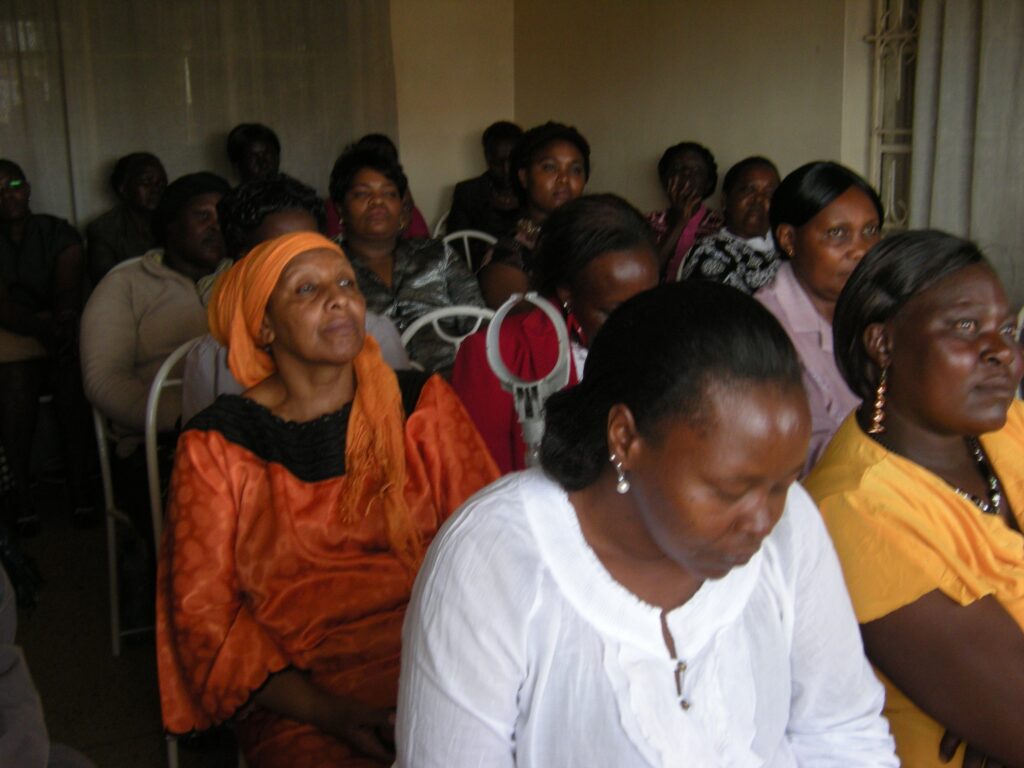

- mercystepsprogram@gmail.com
- +254 726 326557 / +254 722 521980
- +41 79 339 33 64
- PO Box 62345-00200 Nairobi. Kenya
Copyright © 2023 MSP. All Rights Reserved

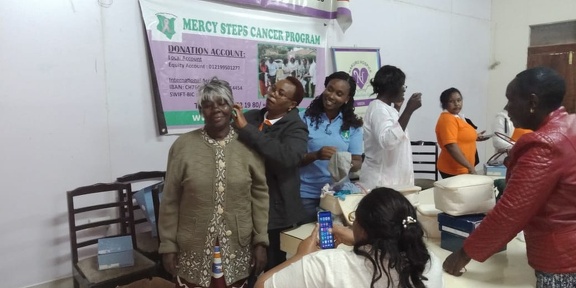
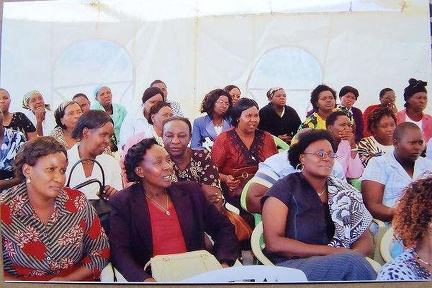
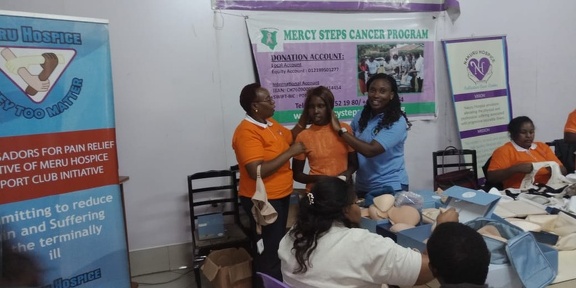
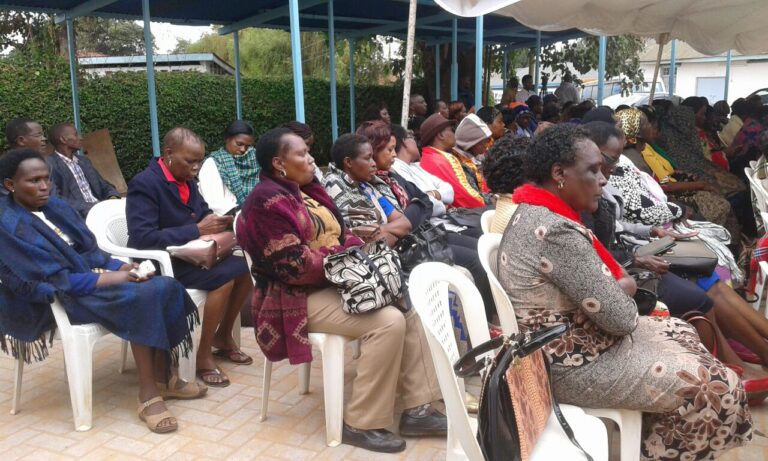
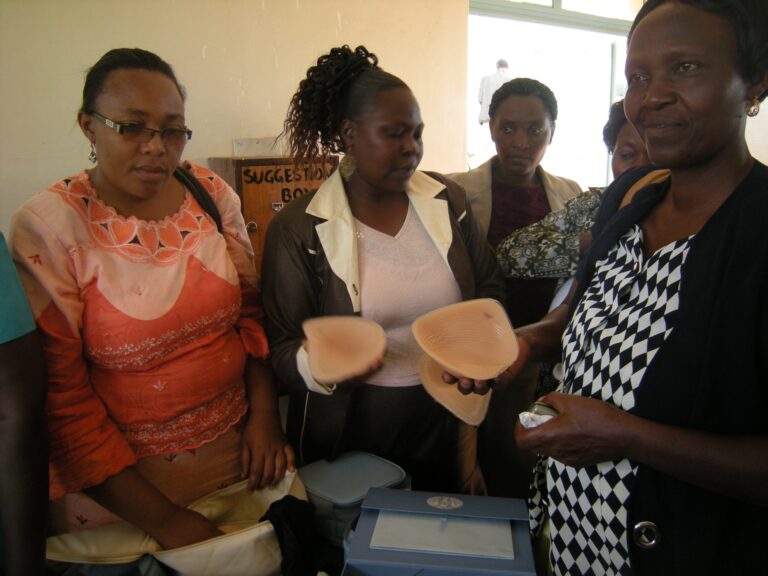
![[000142]](https://mercystepsprogram.org/wp-content/uploads/2023/02/000142-768x576.jpg)
